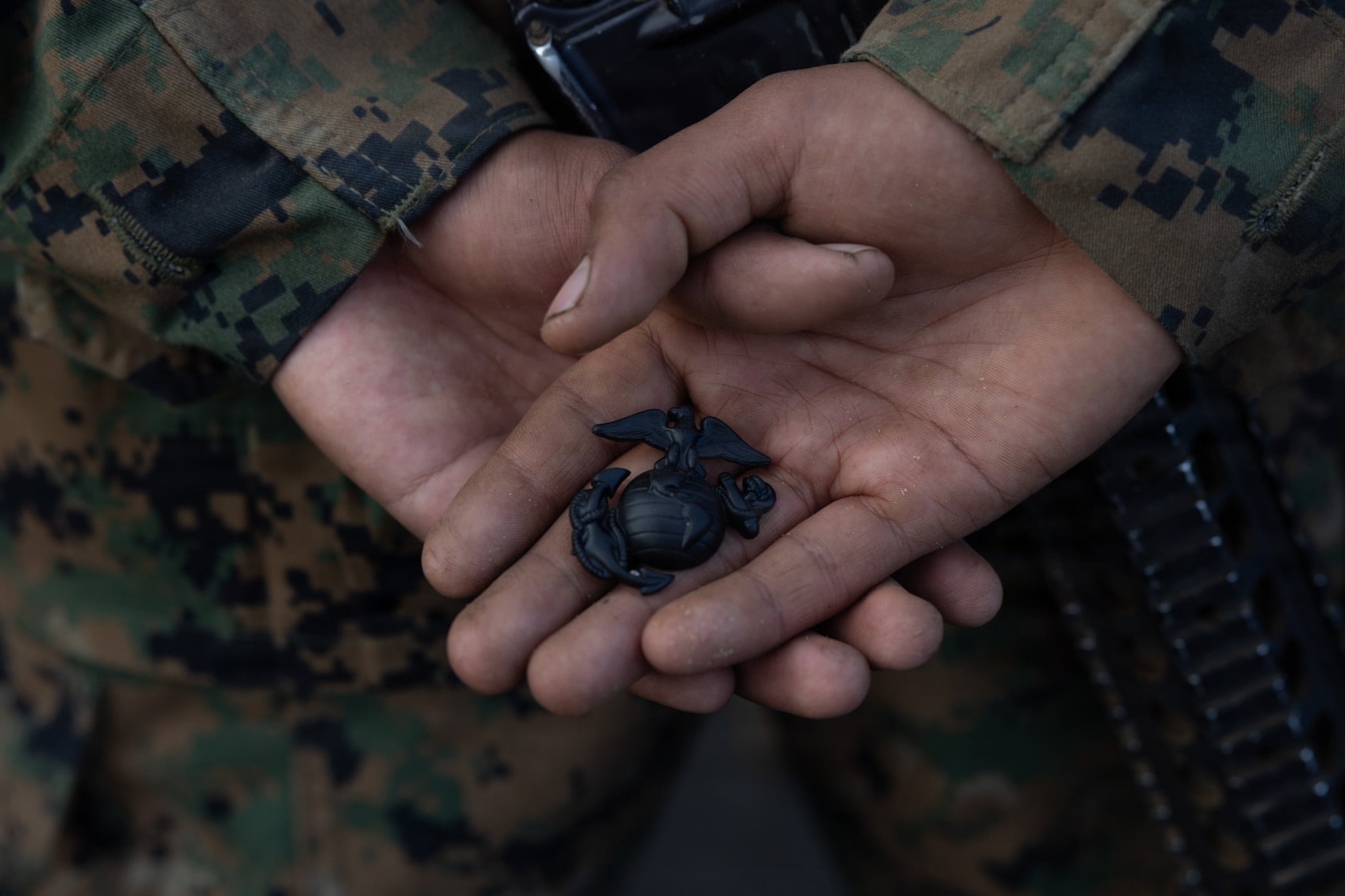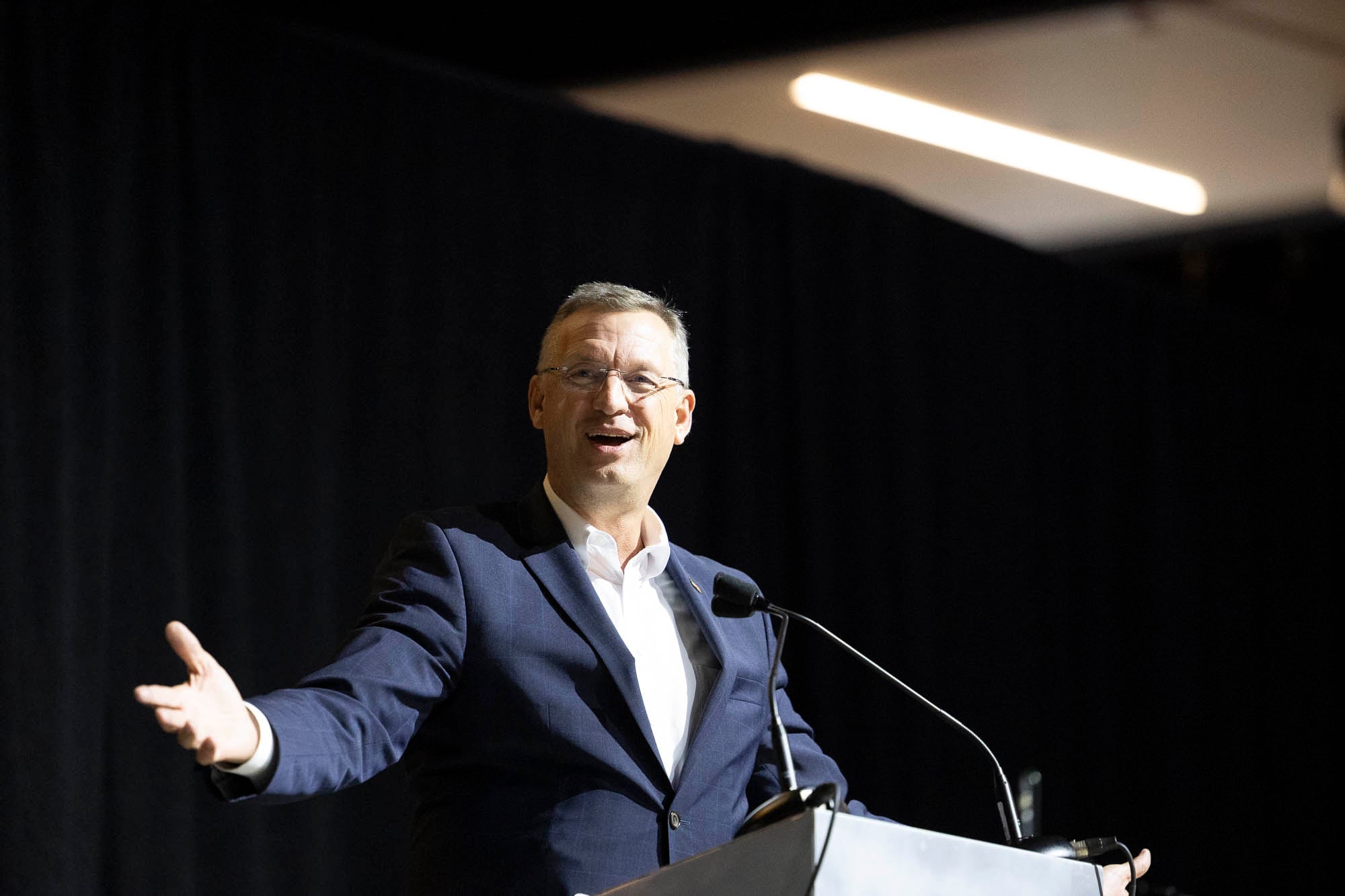After days of waiting and worrying, Tawfiq Khairkhah received the message about his escape for which he had been praying.
important: I am contacting the guards to link you to them and get your family inside. For your linkup, can you meet AT the gate at 0200?
It was from a stranger far away, working for an organization that dubbed itself Team America.
Tawfiq was in hiding. Two days earlier, the Taliban came to his house, asking where he was. His brother told them he had already left Afghanistan. The Taliban did not like the answer, said Tawfiq, so they beat his brother brutally enough to break his wrist.
Do you have a colorized flashlight or other colored light. Does not have to be big, just something a guard could see you turn on when you get close?
For Tawfiq, whose U.S. Green Card had so far proved useless in leaving Afghanistan, time was running out.
U.S. troops were departing in a few days, yet hundreds of American citizens and tens of thousands of Afghans like Tawfiq found themselves unable to get out.
A previous attempt to reach Hamid Karzai International Airport failed just days earlier.
“I tried several gates at the airport,” he said. “But I was not able to pass.”
This represented his last best chance to leave, if he could guide his family, with three children and a man slowed by the injuries of a brutal beating, away from Taliban checkpoints. If he could move through the throng of increasingly agitated Afghans, like him desperate to get out. If he could find the right gate, where he hoped a Team America contact would be waiting for his signal. And finally, if he get his entire party onto an airplane, not a given considering he was the only one with documents.
There was one more complicating factor.
Team America had never tried to rescue an entire family before.
***
More than 8,000 miles away, in Tampa, Florida, Lisette Bonano was frantic.
Back in 2010, Tawfiq worked with her at Forward Operating Base Lightning, in Gardez province. A retired Army lieutenant colonel, Bonano was working as a contractor, teaching the Afghan army inspector general’s office how to oversee a nascent military struggling to conform to rules of order foreign to them.
The two grew close.
“She is my mom,” Tawfiq liked to say.
They stayed in touch over the years, regularly exchanging messages and pictures.
As the Taliban’s victory became more apparent, Bonano spent an increasing number of hours reaching out to politicians and aid groups to get help for Tawfiq and several other Afghans she had worked with over the years.
“I am persistent!,” she said in a Facebook messenger message to Military Times on Aug. 17. “I don’t like the word no or impossible. Especially when it comes to saving people’s lives. Everything is possible with G+d.”
As the days passed, her concern about Tawfiq grew.
“Tawfiq is desperately trying to get out,” she said in a message to Military Times on Aug. 21.
Military Times in turn reached out to Team America, which it wrote about several days earlier. They asked for Tawfiq’s information and put him in their database. Email exchanges with Tawfiq soon followed.
***
The first thing Team America needed was to verify Tawfiq’s location and his documents.
Though an hour away, he was still close enough to the airport. And as a Green Card holder, he would be allowed to pass through the gates.
“We recognized that he was someone we could get out,” said Joe Saboe, the Army veteran who created the ad hoc organization that became Team America, one of several veteran-run groups — like Digital Dunkirk, Allied Airlift 21, the Pineapple Express and ARCPlanB.org among others — working to save Americans and Afghan allies left behind.
But that was just the beginning.
“We had to get him through the crowd,” said Saboe. “That was the hard part.”
Saboe said Team America asked Tawfiq to survey what resources he had on hand, and asked if he had anything to wave or show that he was at the airport once he arrived. Tawfiq had a blue pen light.
They also asked Tawfiq to send photos of everyone in his party, so that the group could be recognized by other families they might meet up with at the Kabul airport, as well as the people at the gate, who would let them in
***
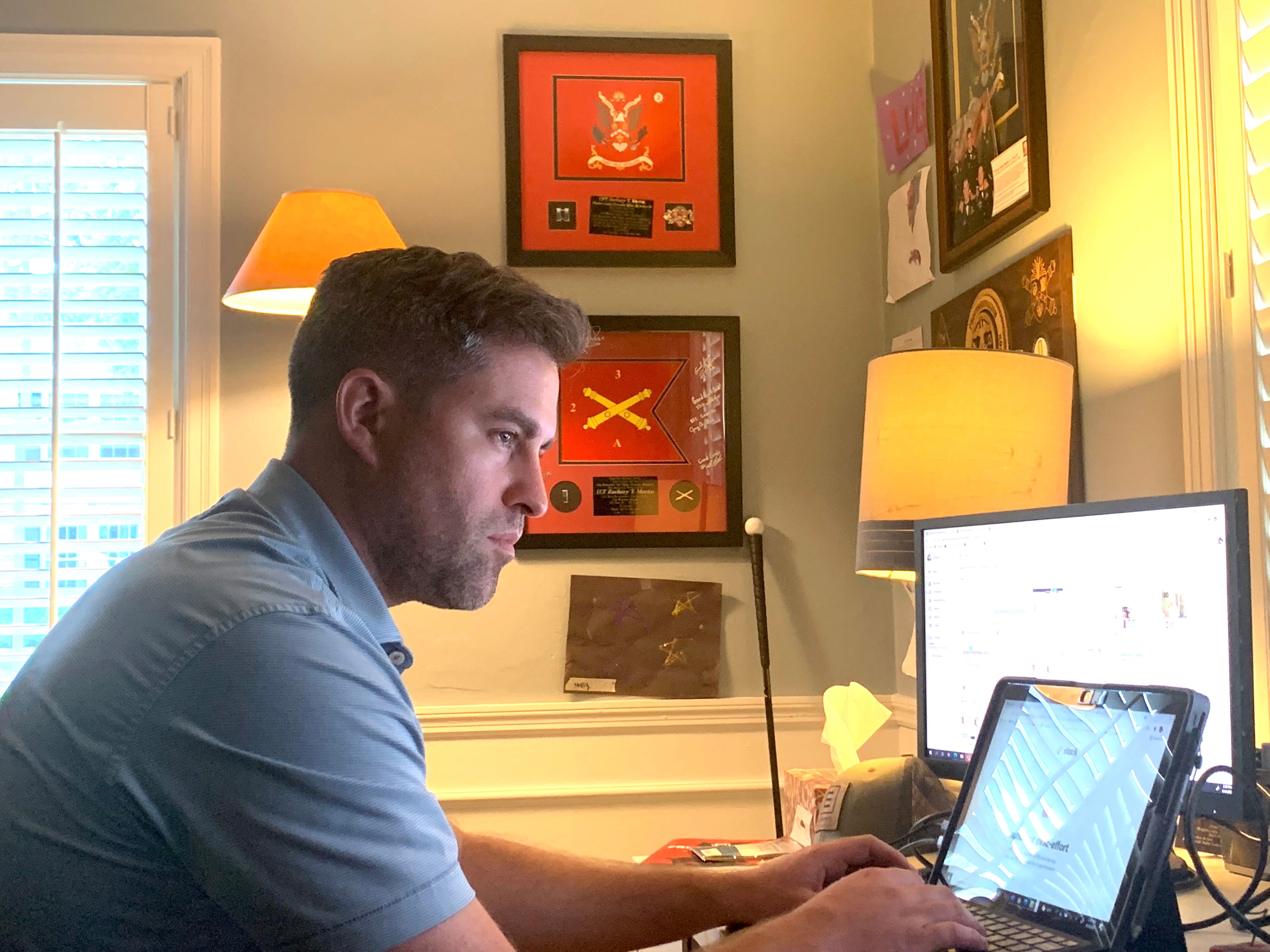
After giving Tawfiq his instruction, nearly a dozen Team America “battle captains” from around the country gathered to make sure that he and his family were able to avoid the Taliban and find the right gate
From D.C. and Denver, Maine, Maryland and Massachusetts, Minnesota and Texas, the volunteers worked around the clock, taking shifts to ensure Tawfiq’s group — and so many others — found their way to the relative safety of Hamid Karzai International Airport.
They were all veterans, said Saboe, many of whom were connected to him from his time at the 1st Battalion, 36th Infantry Regiment in Iraq, or were fellow members of the Georgetown University ROTC.
The mission relied heavily on the battle captains’ combined experience, guile and wits.
“We were moving 100 people that night,” said Saboe. “I was personally running two other linkups, while this team was doing that. It got more complicated. We worked with Marines and Special Forces to get people inside.”
To help ensure that Tawfiq and his party made it, Team America sent a GPS map, pointing out the safest route and Taliban checkpoints.
“It was nuts,” he said. “This was one of the wildest, most dramatic nights. We just had moments where we thought someone lost an opportunity, because they missed a linkup time. Or no one saw the signal.”
***
Despite the message from Team America, Tawfiq worried he and his family still might not escape.
“I told some of my family, ‘go with me,’” he recalled. “It’s okay if not, because it is not for sure that I can get you out.”
Ultimately, several family members agreed to make a break — his brother Jawed Khairkhah and wife Nazanin Khairkhah along with their children Ali Sajad Khairkhah, 12, Asma Khairkhah, 10, and Amir Hamza Khairkhah, 6. The party also included his brother Ahmad Fawad Khairkhah and his son Nesar Ahmad Khairkhah, who was 22.
There was little time to pack or charge cell phones in a country where electricity is never guaranteed.
“They told me that I should take more water and food with me,” said Tawfiq. “So I was trying to get more water and food with me since I had kids with me and I didn’t want them to get dehydrated or starving. But not enough clothes. I took only two t shirts and one pants. That’s it. And one shoes. Same thing for all my family.”
The lack of clothing and charged phones would later be sources of regret.
***
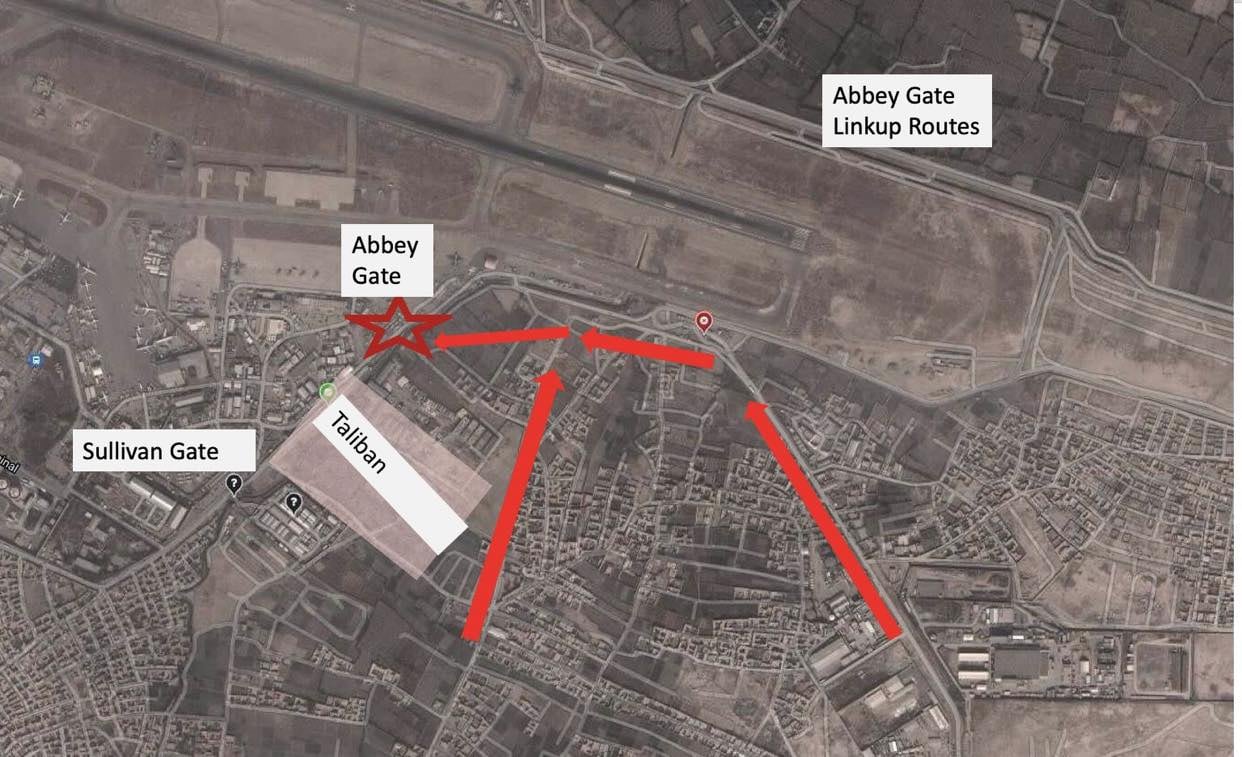
Their location in west Kabul was too far for a Team America transport vehicle, so Tawfiq hired a van and driver.
As night fell, he gathered the adults and children and began loading them into the van. He took the front passenger seat and Amir, the 6-year-old, sat in his lap.
Armed with a GPS map indicating the best route and Taliban checkpoints, they headed off toward the airport.
When television programming changed from the array of Afghan entertainment to the stern messaging of the Taliban, even the smallest of the children became aware that an unfortunate fate awaited if they stayed. But to them, trying to sneak past RPG-toting Taliban, in the dead of night, was terrifying.
“In one place, there was a traffic jam,”Tawfiq recalled. “And then the Taliban, just get out of one car and they were shooting in the air. And I put my hands over my nephew’s ears that he should not be scared of the shooting.”
Tawfiq had his own fear, one he kept to himself.
“If the Taliban stopped us and checked my cell phone, they would find a lot of stuff,” he said. “There was evidence to catch me and put me in jail. Or I don’t know what.”
***
Upon instructions from Team America, Tawfiq and his party waited for another family.
Around midnight, after they didn’t show, he led his own family from the van on a half-mile trek to the airport’s Abbey Gate, where a Team America contact was waiting.
The night was filled with the cacophony of thousands of frightened people. Loud screams. Hushed chatter. The constant beat of thousands of feet.
“Most of them were yelling and called out to the Marine Corps for help to let them get into the airport,” he said.
Just getting there was hard enough. But making it to the right gate proved an even more formidable challenge. Tawfiq, shepherding a group that could easily get separated, worried about losing anyone along the way.
It helped that Team America contacts kept texting him, guiding him toward the Abbey Gate. Still, they had to make their way through a tense and terrified crowd, which had been pressing up against the gate for days, some going without food and water.
Staying closely together, they inched toward Abbey Gate, But then another problem presented itself, one that Team America could do nothing about.
It was a deep ditch. Full of dark, fetid, sewage-tainted water.
Getting to the gate meant getting through that.
“It was really hard to cross,” said Tawfiq. “The water was over my knees. It was it was a dark and dirty water.”
One by one, Tawfiq had to help his family cross.
“I was carrying my family, especially the kids, and also my brother with the broken wrist. And so it was really hard for me. And also, it was kind of up and down. So when I was stepping, I keep losing my balance. I lost my balance once and I fall down in the dirty water, like, the water was all around my shoulder, and everywhere. But my goal was to not let the kids drop or fall down in the water. Because It could be really bad for their health.”
***
At about 1:30 a.m. on Aug. 25th, Tawfiq and his party, tired and drenched in sewage, had a clearer path to the gate.
One of Team America’s contacts texted messages of encouragement.
Use the blue light.
Use it now.
They are looking for it.
Keep doing it.
It’s working.
You’re doing great.
They see you.
Then, abruptly, communications ended.
“They had jammers around the gate,” said Saboe, a safety precaution against suicide bombers.
Unnerving though it may have been for Tawfiq, to Team America it was a hopeful sign.
“We were interpreting the long radio silence as ‘good news’ given the presence of the jammers,” said one battle captain, a former Army intel officer, who helped guide Tawfiq and his family to safety. “It was only an assumption based on my previous combat deployments. I did not have any specific knowledge about the capabilities, equipment, or TTPs being employed by the units assigned to those gates.”
After a wait of an hour, the former intel officer’s hunch proved right via a message from Tawfiq.
Hello sir. I just got in the airport.
For Team America, it was mission accomplished that night, with about 100 people total able to get into the airport.
But for Tawfiq, there was still one worry looming large over all the other nagging concerns.
As a Green Card holder, he was guaranteed to get a white wrist band, which would serve as his ticket onto a plane.
The same was not certain for the others.
***
In Tampa, Lisette Bonano was fretting. She hadn’t heard from Tawfiq in a while and didn’t know if he and his family made it.
So many other Afghans she was trying to rescue had not.
Am stressing! Upsetting and at the same time happy to see others that just made it out because I have been trying for over a week to get mine out! Unbelievable!
“My interpreter is like a son,” she said in a Facebook message Aug. 24, which also included the names of several other Afghans she’d worked with and was now trying to rescue. “Just makes no sense that we couldn’t help them get out. In no way I will be able to sleep.”
***
Inside Hamid Karzai International Airport. Tawfiq and his family were safe from the Taliban, but it was windy and cold and there were no blankets, nor anyplace but the floor to sleep. That they were still wearing their sewage-soaked clothing.
Food consisted of the MREs provided by Marines and some snacks they’d brought along.
Reaching the outside world was difficult, because everyone’s cell phones ran out of juice. But fortunately, Tawfiq brought a portable charger. After a while, he was able to send out some messages.
One was to Team America, telling him he was safe.
Another was to Bonano.
He messaged Military Times as well.
Team America help me a lot to get there.
***
Back in the U.S., Team America was feeling pretty good.
“What I recall the most about this incident was how brave the family was and how much of a team effort it was,” said one of the battle captains, Katherine Schuette, who previously served in the Army as an intelligence officer. “This particular family was so brave, we asked them to leave their house in the middle of the night, take a taxi to a location they had never been, get out and walk to a specified location that we knew would be crowded and potentially dangerous. The family didn’t hesitate, they trusted us implicitly. There was no guarantee that this would work, in fact this was the first time we had tried this effort with a family. They were willing to do everything we asked and despite the stress and danger, had the foresight to take a recognition signal with them, the blue light!”
Schuette said Team America learned from the previous night and, using those lessons, helped guide the family.
“We had several people on our team, guiding the family, asking them to send us pictures of what they were wearing, to stay with us, to trust us, again despite all the unknowns,” she said. “We literally had team members on Google, mapping the location out, identifying potential routes.”
The final message from Team America to Tawfiq and his party, that they made it inside HKIA “was an amazing feeling.” said Schuette. “Furthermore, it was the lessons we learned from his willingness to let us help guide him, that helped us guide other families to safety later that night.
“This particular situation is one that will stay with me,” she added. “The idea that I would be part of a team of random civilians, guiding a family through Afghanistan from thousands of miles away, was something that was unfathomable to me prior to me volunteering.”
But the good feelings were not to last.
***
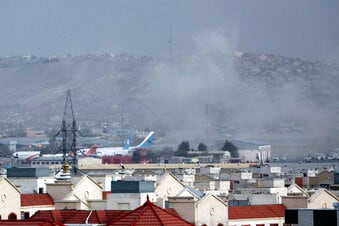
As Tawfiq cared for his family inside, another relative had come to the airport, trying to get out. Though a British citizen, he was not able to get inside.
Later that morning, news spread of some kind of horrific incident outside the gates.
From where he was, Tawfiq said he didn’t hear anything and he had no signal for his phone to find out, so he had no way of knowing what the rest of the world was learning. An ISIS-K suicide bomber blew himself up at the Abbey Gate, which they had passed through just the night before. The attack killed 13 U.S. service members and scores of Afghan civilians.
All Tawfiq knew for sure was that his cousin had been outside the gate, trying to get inside.
And now, in addition to his concerns about getting his entire traveling party onto a plane, he had another reason to worry.
***
With the airport still in a state of tumult, Tawfiq’s fear that U.S. officials would bar his family from flying — even after all they’d been through - was looking like a nightmare come true.
In order to get on a flight, evacuees had to obtain a white wrist band from the State Department.
When Tawfiq approached a State Department official to get wrist bands for his family, the initial response was not positive, he said.
“He asked me what documents I have,” said Tawfiq, who showed the official his Green Card.
“How many people do you have?” the official asked, said Tawfiq.
“Seven,” he responded. “And they have nothing.”
The official was not hopeful.
“I don’t think it is possible to take seven people,” he said.
“Why not?” Tawfiq asked. “They are my family and there is all this unrest. And I am kind of fearful for the rest of my family that are staying in Kabul.”
The man from the State Department relented.
“There is one thing we can do for you,” Tawfiq recalled him saying. “We will let you go. If you want to go to the United States, you can, but your family will have to go to Qatar and they have to stay there for at least six to eight months.”
Tawfiq was okay with that.
“At least they will get out of Afghanistan,” he said. “Qatar is not going to be a problem.”
***
On Aug. 27, it was finally time to leave Afghanistan.
Lining up with hundreds of others to get on the big American military cargo plane, the children traveling with Tawfiq were excited.
It was their first time flying, and nothing like they imaged from watching it on television and in the movies.
There were no seats. People walked in from the back and found whatever space they could on the floor.
“Uncle, what kind of plane is this?” Amir, the six-year-old asked. “Where are the seats?”
Tawfiq said he explained that this was a different kind of plane, and because it was an emergency, this one would do.
A short while later, as the plane rumbled down the runway, the children’s concerns began to ease.
“Yes,” said Ali, the 12-year-old, “we are finally getting out of Afghanistan. There is not going to be anymore Taliban.”
***
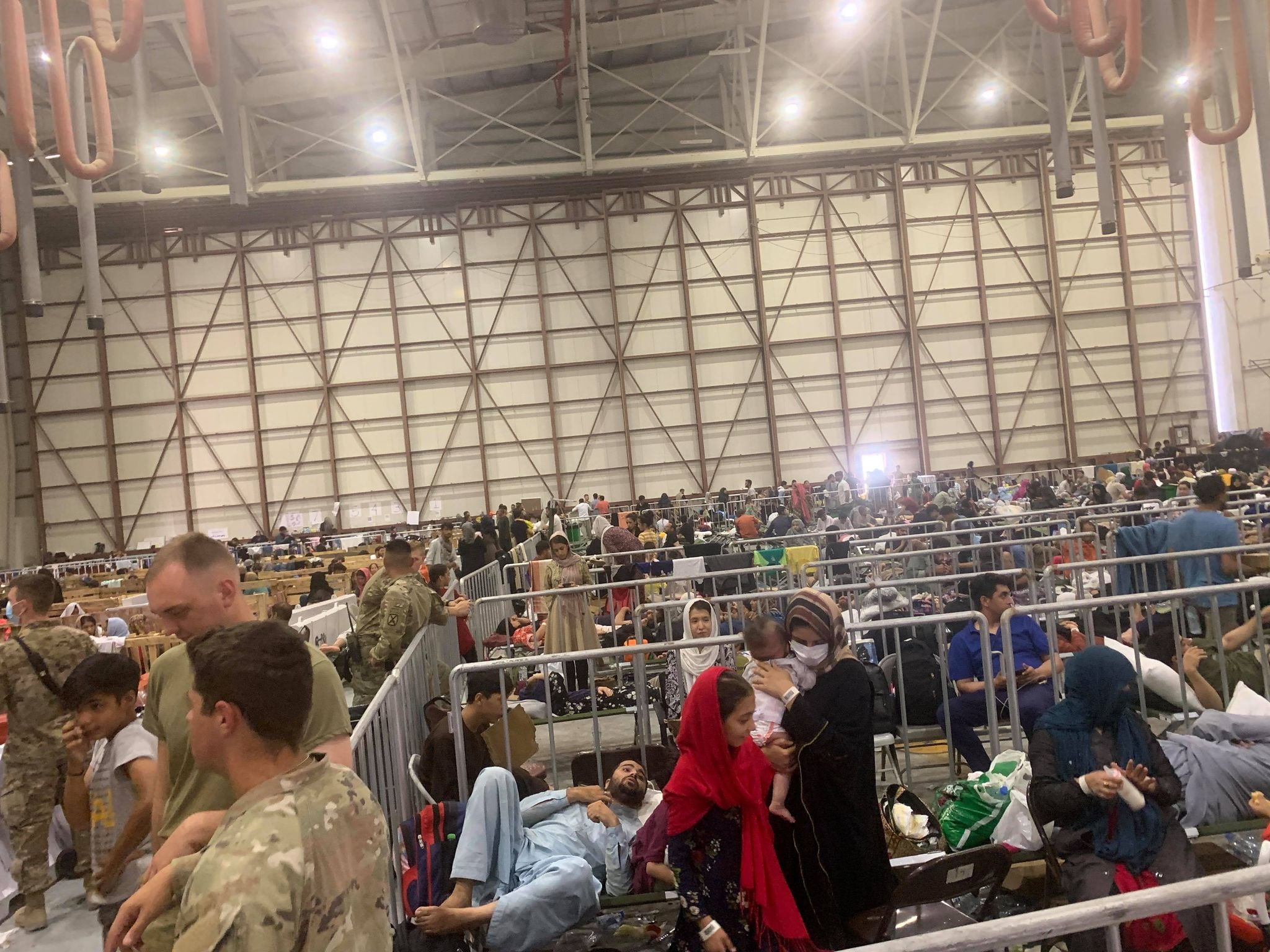
The days of not hearing from Tawfiq worried Bonano.
Then at 11:33 p.m. Friday night, Aug. 27, she received a hopeful sign.
“Tawfiq’s FB msgr was displayed as green just now, but still no response,” she said in a message to Military Times.
Minutes later, that hopeful sign turned into a happy reality.
“He just texted!!!! Praise Adonai!!!!! ,” Bonano messaged Military Times. “Tawfiq: Hi mom I am fine how are you? We are in Qatar right now.”
“I was actually walking like a zombie — didn’t know how what to think,” said Bonano of the hours of waiting and worrying. “Was going to ask Afghans still there to see if there was a list of the deceased. Didn’t have to!”
***
After landing in Qatar, Tawfiq received two pieces of good news.
His cousin, who had gone to the airport the morning of the attack, left two hours earlier and was safe. And the family members he’d been traveling with would not have to wait in Qatar for months after all.
They left Qatar, spent several days at Ramstein Air Base in Germany, and finally made it to the U.S., where they are staying at a hotel in Virginia under quarantine because one of the party had tested positive for COVID.
A truck driver in his last job, Tawfiq has to figure out how to make a living. And where his kids will go to school, something he said they can’t wait to do.
Though incredibly grateful to the U.S. and especially to Team America and Lisette Bonano, Tawfiq still has worries and concerns.
There are tens of thousands of Afghans, who risked their lives to help the U.S., still stuck, including members of his own family.
Tawfiq knows that his family — not among the more than 120,000 people evacuated by the U.S. — would have been left behind if not for the dogged work of a group of private citizens. When asked if he has a message for the Biden administration, he said: “Please help people who stuck in Afghanistan, whose lives are at risk because the Taliban will never change. I was a young boy when they first took over and saw what they did to people.
“They are gonna start searching for people, bothering people. And killing people,” he said. “Because, for them — and I know, as I saw it before — killing a person for them is like drinking water. Even easier.”
With America’s 20-year war in Afghanistan coming to an abrupt and chaotic end, the U.S. did not do enough to help its Afghan allies, Tawfiq said.
“There’s still a lot of Afghans who used to work with U.S. forces who can’t get out. Like my brother,” said Tawfiq. “I know the U.S. has done a lot, but I have a request. They still need to do more, because a lot of people are living in risk.”
Howard Altman is an award-winning editor and reporter who was previously the military reporter for the Tampa Bay Times and before that the Tampa Tribune, where he covered USCENTCOM, USSOCOM and SOF writ large among many other topics.


